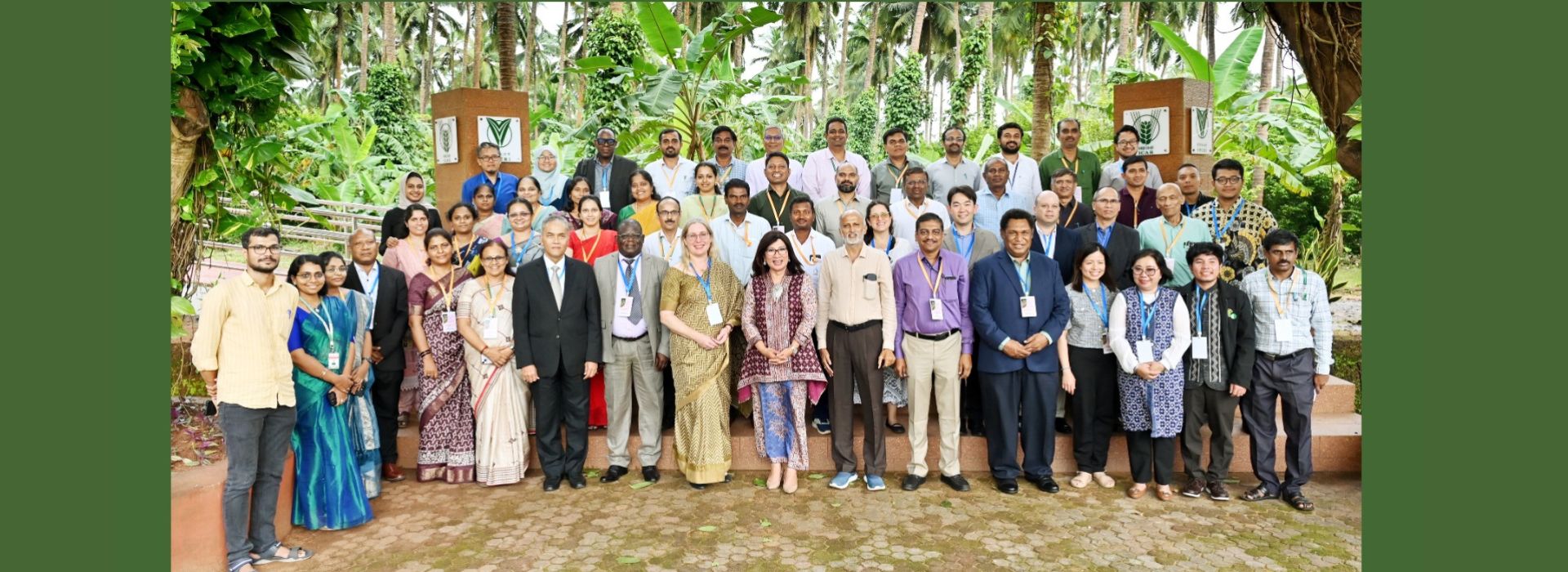The International Coconut Community (ICC), in collaboration with the Indian Council of Agricultural Research (ICAR) - Central Plantation Crops Research Institute (CPCRI), successfully organized the International Workshop on Strengthening Coconut Genebanks for a Climate Resilient and Sustainable Future alongside the celebrations of World Coconut Day (WCD) 2025. This year’s WCD was observed under the theme “Uncovering Coconut’s Power, Inspiring Global Action.”
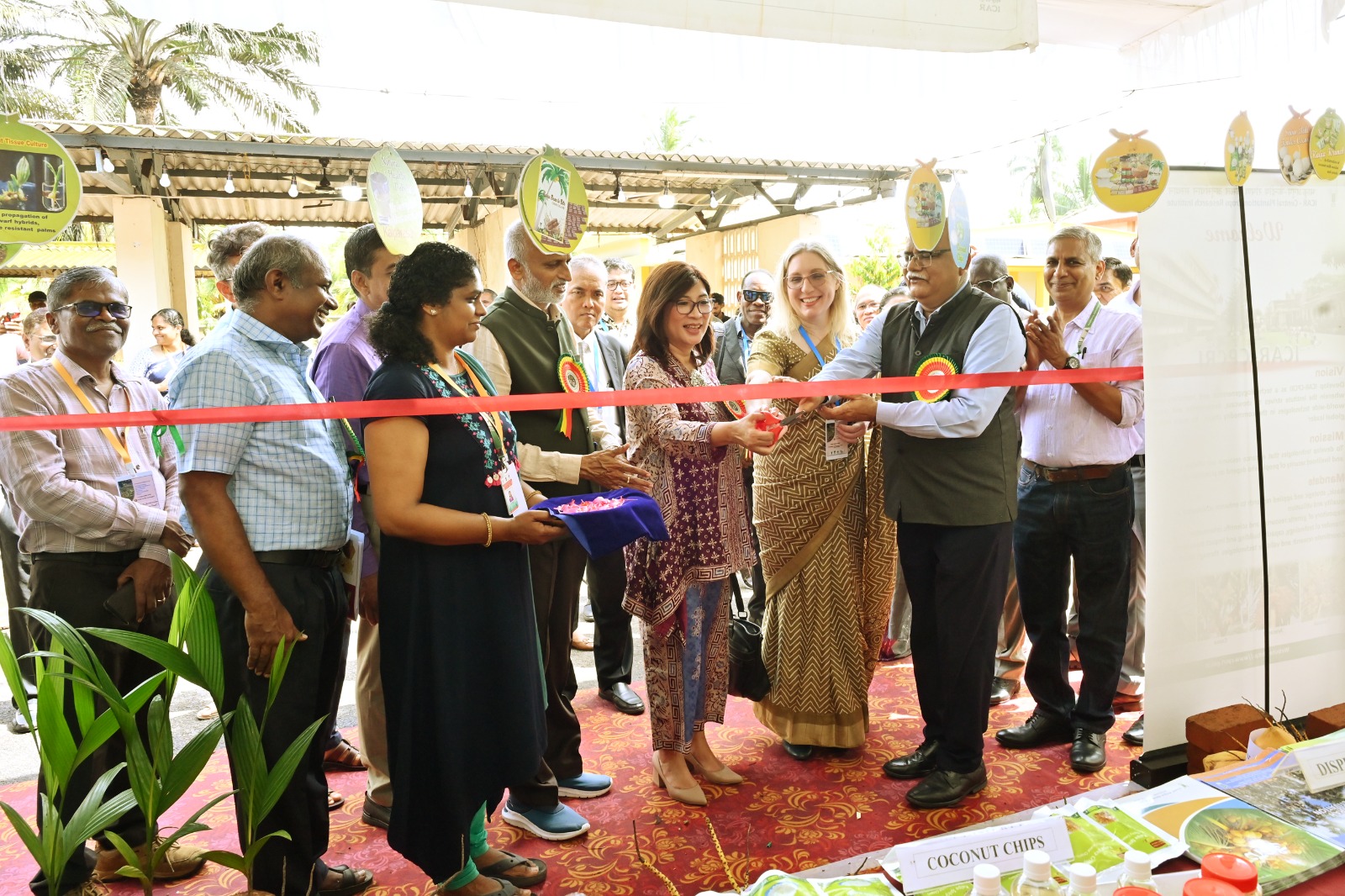
The programme was presided over by Dr. Sanjay Kumar Singh, DDG (Horticultural Sciences), ICAR, New Delhi, while Shri Rajmohan Unnithan, Honorable Member of Parliament, Kasaragod, formally inaugurated the celebrations. In his introductory remarks, Dr. K. Balachandra Hebbar, Director of ICAR–CPCRI, highlighted CPCRI’s ongoing efforts to achieve sustainable yield and productivity, noting that adoption of scientific technologies can improve coconut yield by as much as 15%. He cautioned that sudden spikes in price due to production shortages risk adulteration, underscoring the importance of balanced production and consumption.
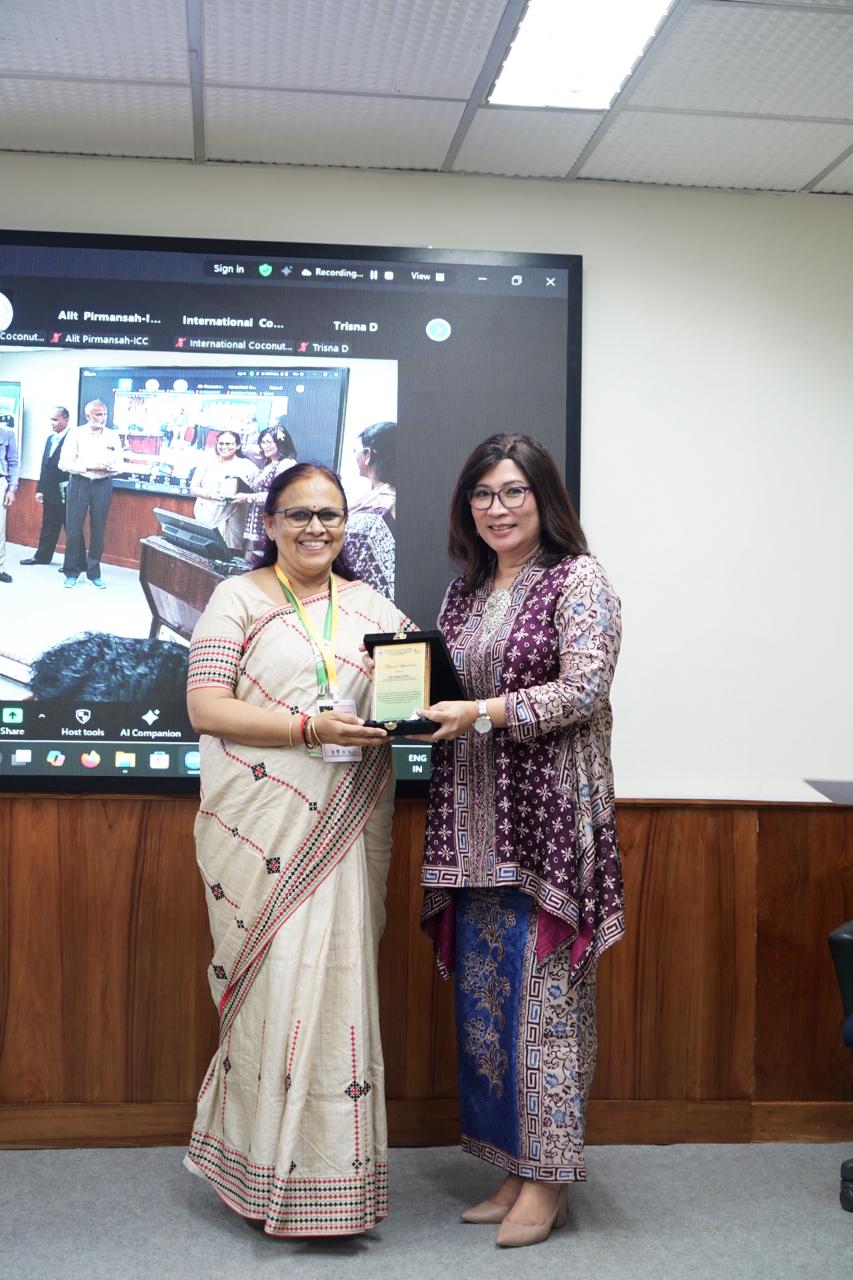
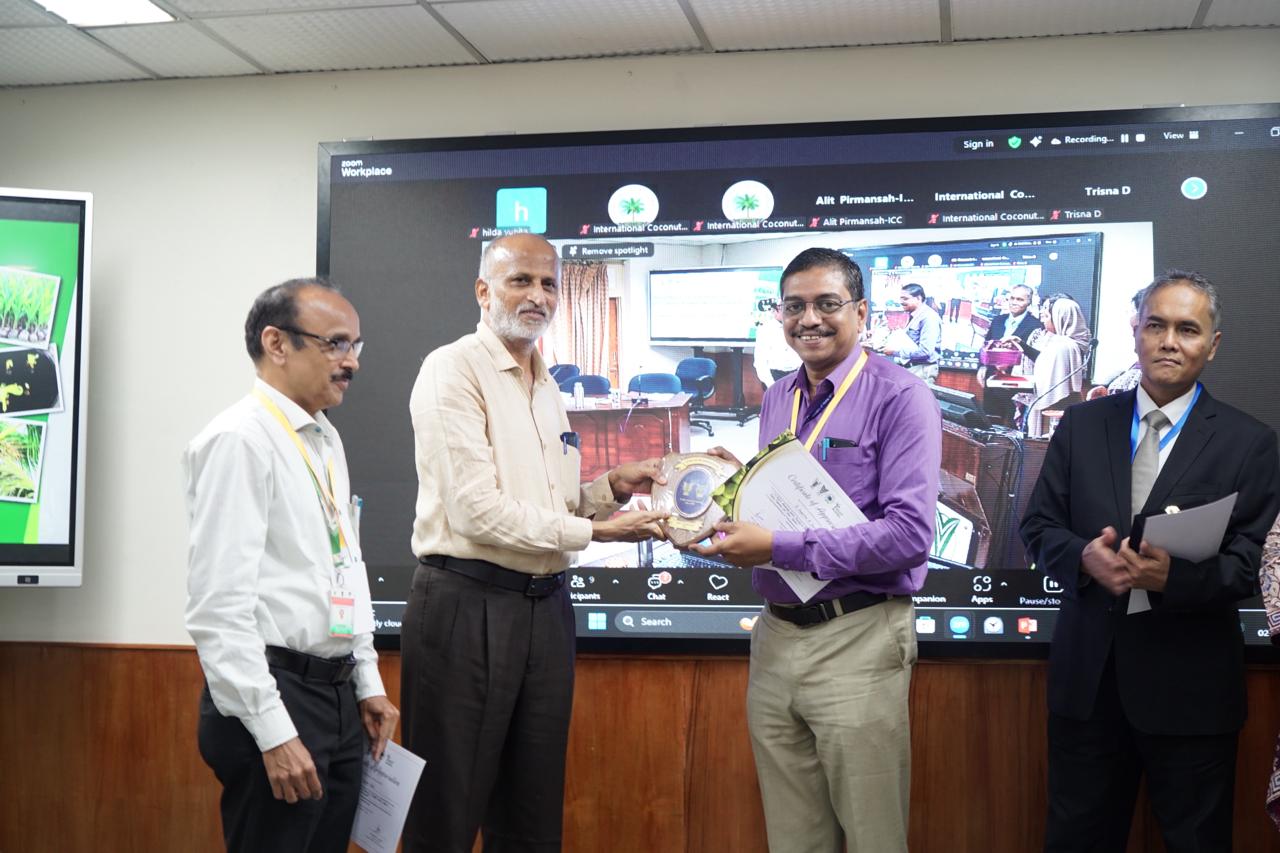
Dr. Jelfina C. Alouw, Director General of ICC, delivered the keynote address, emphasizing the importance of coconut genetic resources and the significance of celebrating World Coconut Day. She underlined that global challenges should be met through collaboration rather than competition. Shri Rajmohan Unnithan, MP Kasaragod, highlighted the challenges faced by coconut farmers, including pest pressures and fluctuating prices, and urged that research must be strengthened to address the real needs of the farming community.
In his presidential address, Dr. S. K. Singh emphasized ICAR’s vision for strengthening the coconut sector and noted that the participation of representatives from 14 countries underscored the global importance of the event. He encouraged the development of new coconut varieties and products to expand international markets, while also advocating for microbial enrichment and sustainable practices over excessive fertilizer use.
H.E. Ambassador Diar Nurbintoro, Director of the NAM CSSTC, Jakarta, attended as Guest of Honour, calling on participants to work collectively for sustainability and prosperity, with ICC member countries playing a central role. Other dignitaries included Dr. J. Dinakara Adiga, Director, ICAR–DCR, Puttur, who spoke about coconut’s cultural significance in India, and Dr. Augustine Jerard, Project Coordinator (Palms), who emphasized the workshop’s relevance for climate-resilient breeding. The event also featured the inauguration of exhibition stalls and a sales counter, showcasing coconut-based products and innovations.
The workshop itself brought together over 30 resource speakers and international participants from 14 countries, including Indonesia, Côte d’Ivoire, Brazil, Papua New Guinea, Sri Lanka, Philippines, Malaysia, Jamaica, Australia, Italy, Germany, France and Thailand, along with representatives of NABARD, state extension officers, entrepreneurs, scientists, farmers, FPOs, and NGOs.
Across four technical sessions and thirteen flash presentations by young researchers, the workshop provided invaluable insights into harmonized and standardized management practices for International and National Coconut Genebanks, the creation of a unified global database, the integration of genomics and AI tools, and improved systems of communication and collaboration. Discussions further emphasized in vitro and cryopreservation methods, forecasting of pest and disease risks, Article 15 agreements under the FAO Plant Treaty, and stronger donor engagement.
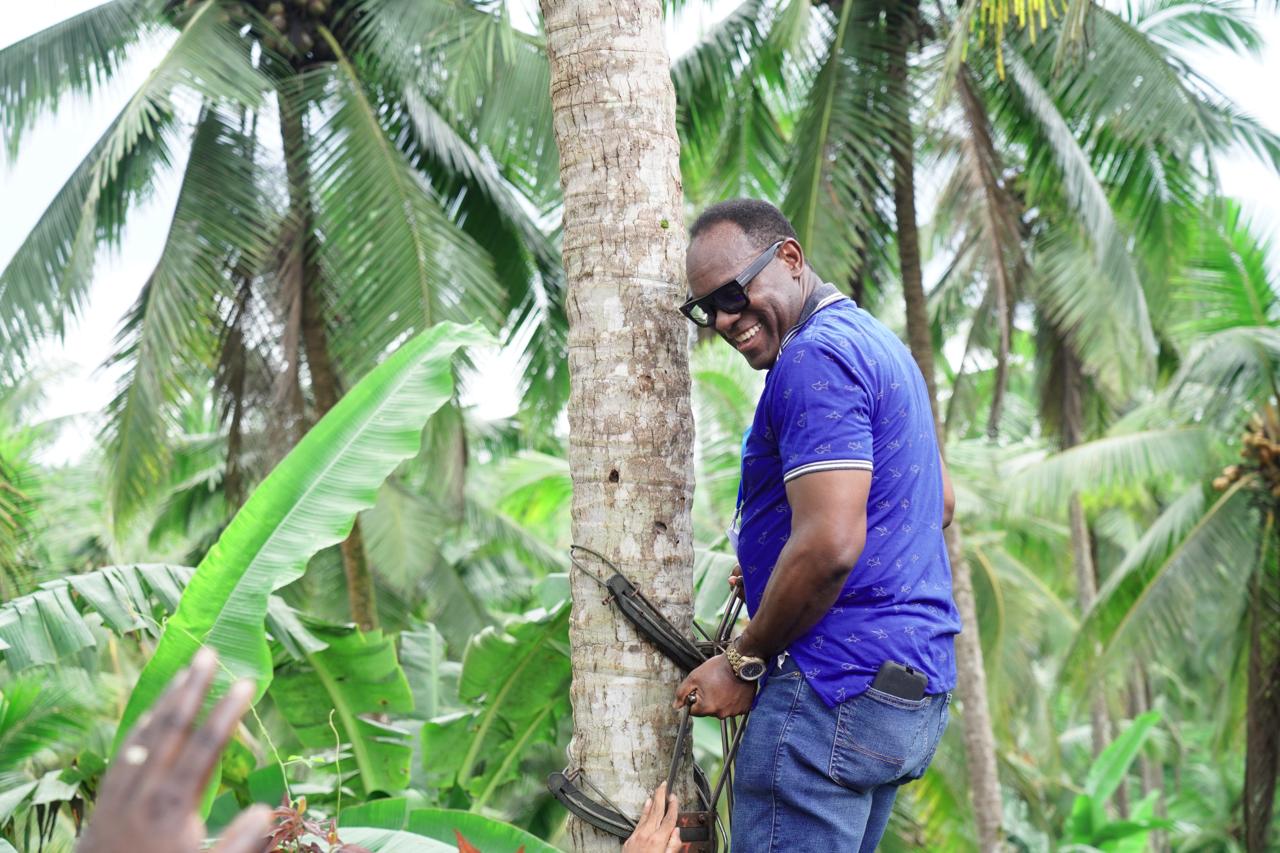
The sessions collectively paved the way for the drafting of a roadmap for strengthening coconut genebanks, which will be refined through ITAGs and focal points before being presented to the ICC COGENT Steering Committee and then ICC Session and Ministerial Meeting. The workshop concluded with a unique cultural and technical experience, including a field visit to the International Coconut Genebank for South Asia and the Middle East (ICG–SAME) at Kido, a traditional Onam feast, and a concluding discussion held aboard a houseboat in the Kerala backwaters, combining scientific dialogue with cultural immersion.
The joint celebration of World Coconut Day 2025 and the International Workshop reaffirmed ICC’s role as the only intergovernmental organization exclusively dedicated to the coconut sector. It also highlighted India’s leadership in conservation and research, and the importance of global collaboration in safeguarding coconut genetic resources for future generations.

